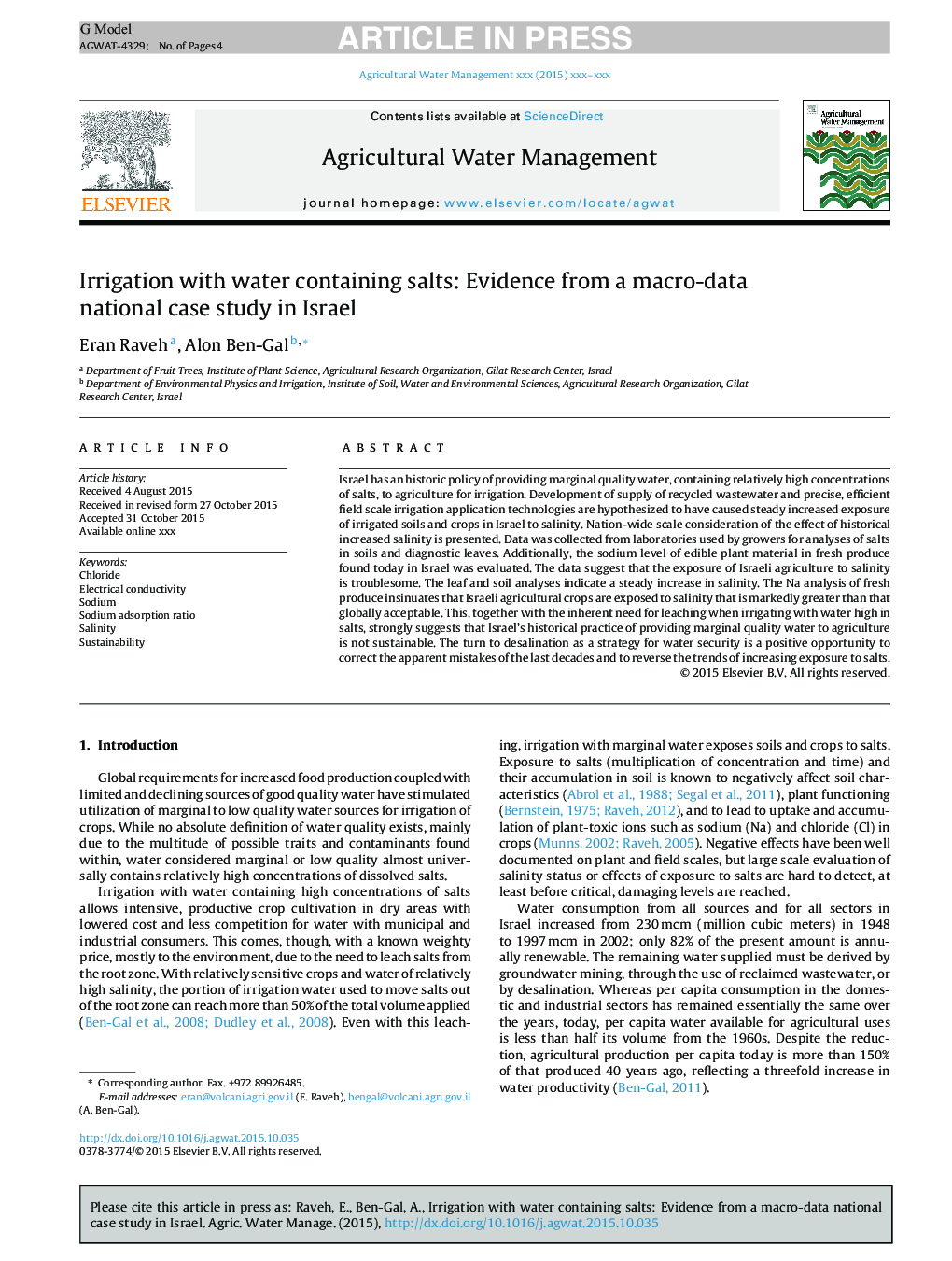| Article ID | Journal | Published Year | Pages | File Type |
|---|---|---|---|---|
| 6363547 | Agricultural Water Management | 2016 | 4 Pages |
Abstract
Israel has an historic policy of providing marginal quality water, containing relatively high concentrations of salts, to agriculture for irrigation. Development of supply of recycled wastewater and precise, efficient field scale irrigation application technologies are hypothesized to have caused steady increased exposure of irrigated soils and crops in Israel to salinity. Nation-wide scale consideration of the effect of historical increased salinity is presented. Data was collected from laboratories used by growers for analyses of salts in soils and diagnostic leaves. Additionally, the sodium level of edible plant material in fresh produce found today in Israel was evaluated. The data suggest that the exposure of Israeli agriculture to salinity is troublesome. The leaf and soil analyses indicate a steady increase in salinity. The Na analysis of fresh produce insinuates that Israeli agricultural crops are exposed to salinity that is markedly greater than that globally acceptable. This, together with the inherent need for leaching when irrigating with water high in salts, strongly suggests that Israel's historical practice of providing marginal quality water to agriculture is not sustainable. The turn to desalination as a strategy for water security is a positive opportunity to correct the apparent mistakes of the last decades and to reverse the trends of increasing exposure to salts.
Related Topics
Life Sciences
Agricultural and Biological Sciences
Agronomy and Crop Science
Authors
Eran Raveh, Alon Ben-Gal,
